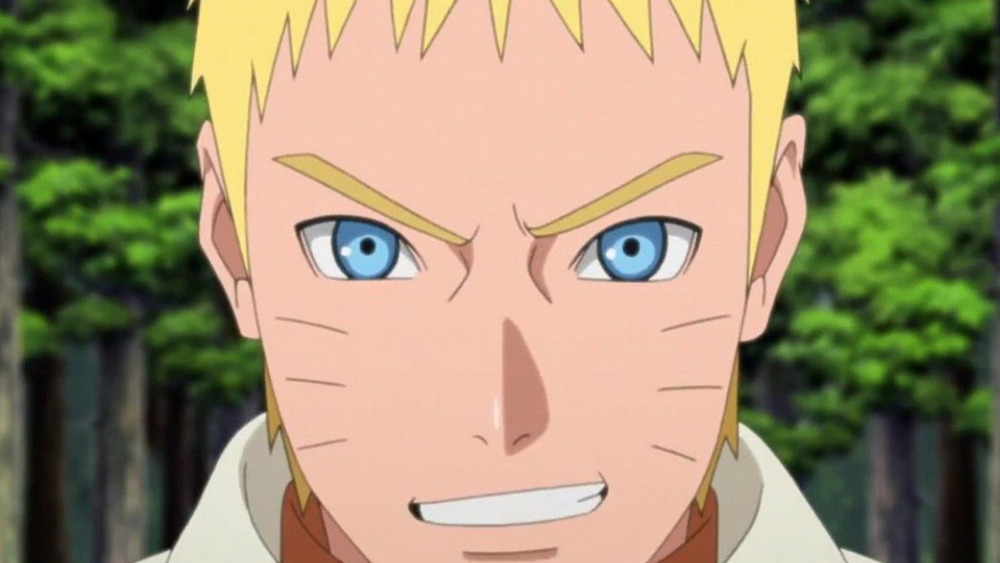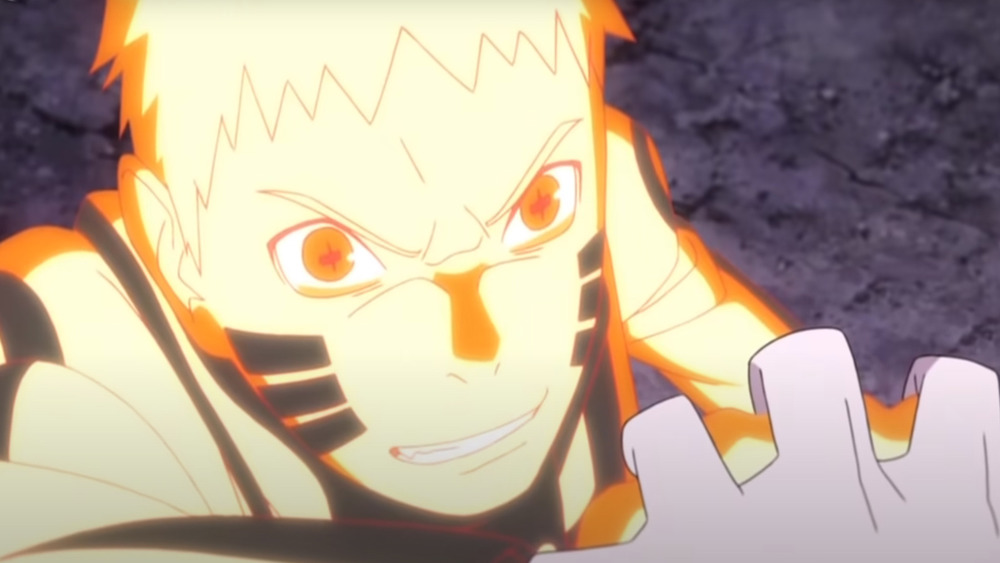What Naruto Finally Stopped Doing When He Grew Up In The Boruto Series
As a shonen anime protagonist, Naruto is a product arguably just as much as he is a fictional character. Shonen anime properties like One Piece, Dragon Ball Z, and Naruto are hugely profitable (via Otaquest). One way to ensure a series with the potential to earn big bucks does so is to feature a likable main character. Thus, Naruto is as noble and good as he is aloof and outrageous. These character traits help make him both a functional protagonist and a driver of Naruto merchandise sales.
One way Naruto frequently exhibits his noble intentions throughout the balance of Naruto's lengthy story is by more-or-less stating them outright. Before or during a number of Naruto's battles against the series' many villains, the character subjects them to impassioned speeches.
For example, prior to fighting Zabuza in the series' first proper story arc, Naruto questions how Zabuza could let Haku, his long apprentice, suffer without showing any sign of caring. Later on, in his battle with Pain, Naruto once again questions the villain's motives after Pain outlines what he considers his own sort of personal philosophy.
In series sequel Boruto, the central cast of Naruto is no longer teenaged but comprised of grown adults. Their children have since become the new series' focus. Age isn't the only significant change to longstanding characters in Boruto, however. Naruto has also stopped engaging in impassioned battle speeches.
Naruto learns to leave some things unsaid in Boruto
This fundamental change in Naruto's approach to battle is never stated outright in Boruto, but it's nevertheless apparent to viewers who have become accustomed to Naurto's loquaciousness.
Versus the otherworldly Momoshiki, for example, Naruto and Sasuke, fighting alongside one another, simply jump straight into the action. While on one hand, this is simply a more practical strategy, the approach to combat also reflects the characters' new role. No longer are they idealistic teens but parents. Delaying taking action could not just potentially risk their own lives but those of their children.
Naruto is, of course, no less noble as an adult. His commitment to his virtues is and always has been one of his defining traits. However, the adult version of Naruto featured in Boruto is still wiser and less prone to risk. Therefore, in a situation in which he can either jump straight into the fray or spend some time questioning his foe, he'll now choose to fight first and leave the villain's shot at redemption for later.

